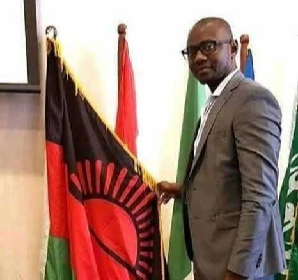By Burnett Munthali
In a recent post on his Facebook page, Bashir delves into the complexities of Malawi’s forex crisis, scrutinizing both past and present administrations’ handling of the nation’s debt and foreign exchange reserves. His analysis raises important questions about the effectiveness of borrowing strategies and the role of leadership in economic management.
Bashir references the analysis of Professor Chawezi Banda, PhD in Micro Economics for Development Countries, who argues that the Democratic Progressive Party (DPP) used loans from institutions like AfreximBank to address forex shortages. According to Banda, when the DPP took over from the People’s Party (PP), Malawi’s debt stood at 1.6 trillion kwacha. Over the DPP’s tenure from 2014 to 2020, the government borrowed an additional 2.5 trillion kwacha, bringing the total debt to 4.1 trillion kwacha. Banda’s argument implies that the substantial borrowing during the DPP era was essential for maintaining forex reserves, suggesting that the forex crisis might have been mitigated by this influx of funds.
However, Bashir counters this perspective by highlighting the current debt situation under President Lazarus Chakwera. The total debt now stands at 13 trillion kwacha. Subtracting the previous debt of 4.1 trillion kwacha, the current administration’s accumulated borrowing amounts to 9 trillion kwacha—significantly more than the DPP’s loans. According to Bashir, if Banda’s argument holds, Malawi should now be in a better position regarding forex availability, given the higher level of borrowing.
Bashir notes that under both the DPP and the current administration, loans from AfreximBank have continued. For instance, the Chakwera administration secured a $2 billion loan last year. Despite these significant loans, forex remains scarce. Bashir questions the effectiveness of these loans, arguing that they are often disbursed in dollars, which does not directly solve the problem of forex availability in other currencies like the South African rand (ZAR) or the Tanzanian shilling.
He highlights a perceived discrepancy: during the DPP era, the administration was able to convert dollar loans into other currencies, but under the current administration, there seems to be a lack of availability of both dollar and other currencies. This suggests that the challenge of forex scarcity might not solely be attributed to the amount of borrowing but rather to how effectively these resources are managed.
Bashir places significant blame on the Reserve Bank of Malawi, particularly criticizing the performance since Dr. Kabambe’s departure. He argues that issues with forex availability and high inflation are indicative of mismanagement at the Reserve Bank. Bashir calls for a reassessment of the individuals in key positions, stressing the need for competent leadership to address the economic issues effectively.
In conclusion, Bashir’s Facebook post provides a critical perspective on Malawi’s forex crisis, questioning the effectiveness of borrowing strategies and the role of leadership in managing the economy. While the argument presented by Professor Banda suggests that borrowing was essential for maintaining forex reserves, the continued scarcity under the current administration and the alleged mismanagement at the Reserve Bank call for a deeper analysis. Bashir advocates for placing the right people in positions of power and highlights the urgency of addressing these economic challenges with a focus on effective management and leadership



